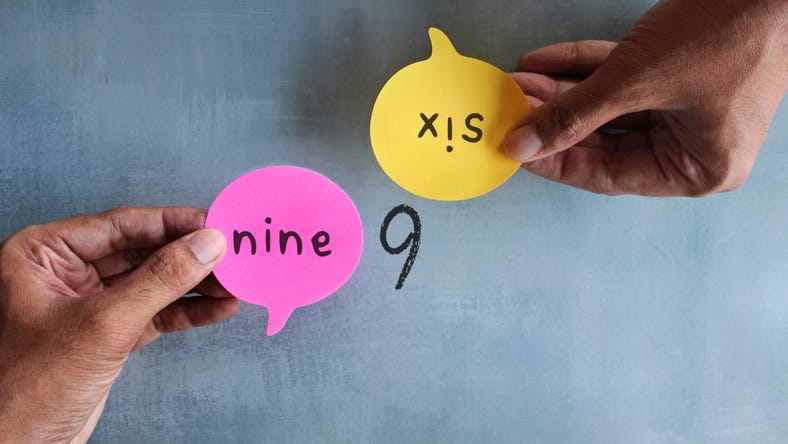How to reassure yourself when you’re in a second-guessing spiral
Or, four ways to stop kicking yourself after a possible social gaffe
Would you like me to read How to Be Enough to you while you’re washing dishes and commuting to work? If only there was a way! But wait, with the audiobook, there is! I don’t even need to sit creepily in the backseat of your car!
As always, whatever medium you choose, please do me a solid and drop a non-perfectionistic (i.e., two words, like “Loved it!” or just stars) review on Amazon, (though please actually get the book from your local independent bookstore or local library!)
A dear reader named Susan wrote in describing a situation everyone has found themselves in, one way or another: she had a social interaction, said something she later second-guessed, and then spiraled with doubt and self-blame.
Specifically, Susan was stuck in a Zoom meeting that had run over time. It was a touchy situation, as the other participants were getting deep and personal, and the leader was someone she deeply respects. But Susan had to get to another appointment, so she let the leader know “I need to leave,” and logged off.
Later, as Susan turned the event over in her mind, she thought (in her own words, lightly edited for clarity):
I said to myself, “You should have posed it as a question, like, ‘Would it be possible…’ or, ‘May I depart….’ rather than just saying, ‘I need to leave.’ …I felt less than adequate in my approach and that I had disappointed the leader.
I …often think later of a better or more articulate way of posing a question and/or statement. This typically spirals my thinking.
Yes! Regardless of the specifics, who among us hasn’t kicked ourselves for saying something that came off poorly, didn’t make sense, or might have accidentally been offensive? Heck, I think I’ve done all three in the past week.
Here are four things we can do when we’re spiraling afterwards:
Second-Guessing Solution #1: Validate yourself.
Susan noted she admires the leader and appreciates her wisdom. She wrote: My need/desire for the leader’s approval? validation? created doubt and quandary.
Yes again! When a relationship is important to us, of course we want to stay in their good graces.
But approval and validation are different.
When we question ourselves afterwards: “Did I do it wrong? Are they mad at me? Was I offensive?” we’re asking “Do they approve?”
Approval implies agreement and endorsement of what we’re doing, thinking, or feeling. Additionally, approval can only come from someone else.
Validation, on the other hand, implies understanding and recognizing the legitimacy of what we’re doing, thinking, or feeling. And guess what? Validation can come from others, but it can also come from ourselves.
Here’s what self-validation might look like for Susan:
“Getting to my next appointment on time was important to me—being reliable is a value of mine.”
“It makes sense that I’m doubting myself—the Zoom leader’s opinion is important to me.”
“I know myself well enough to know when I start to spiral, my mind automatically assumes the worst-case scenario and forgets all the other possible scenarios.”
All of these examples recognize why it’s totally understandable how the situation played out the way it did—both Susan’s original behavior and her subsequent second-guessing. It doesn’t mean we approve of what is happening, but self-validation helps our behaviors and reactions make sense, which means we make sense.
Second-Guessing Solution #2: Turn the tables.
You’re a reasonable person. Therefore, you can use yourself as a stand-in for other reasonable people. Put yourself in the shoes of the other person and imagine their perspective. In Susan’s case:
“How much thought would I give someone else’s exact wording?”
“Would I judge anyone as harshly as I worry the Zoom leader might be judging me?”
“Would I feel disappointed in someone for not articulating something ideally?”
When we turn the tables, it gives us perspective and gets us out of our own head. It’s difficult to view a situation accurately when we’re smack in the middle of it. Putting ourselves in someone else’s shoes allows us to step away and view the situation more accurately from a much-needed distance.
Second-Guessing Solution #3: “I’m allowed to make an honest mistake.”
Mistakes grow in weight and significance if we think we’re not allowed to make them.
We will make mistakes—it’s part of being a human being, especially a human being trying to navigate 2025.
Therefore, make room for mistakes. Susan might ask herself: How often is it reasonable to phrase things non-optimally?
For the rest of us: How often would one expect to have an awkward silence in conversation? What percentage of people have forgotten someone’s name and had to ask again? How many of us have told a joke that no one laughed at?
The specific answer we give is less important than the fact that our answer is bigger than zero. Even if the answer is “a teeny bit,” that’s more than “none.” Ta-da! Now you have some wiggle room to breathe.
Second-Guessing Solution #4: Remember that disapproval of an action is different from disapproval of a person.
Imagine your friend gets a haircut you’re not a fan of. You can validate their choice even as you might not approve: “Good for you! You’ve wanted to take the plunge for so long. I’m happy for you.”
Does not liking their haircut mean you don’t like them? No way! They’re still your friend.
Even if the Zoom leader was put off by Susan’s phrasing (even though I’d bet actual money that she wasn’t), does that mean the Zoom leader now disapproves of Susan as a person? I’d bet even more actual money that the answer is a resounding ‘no.’
Now, of course we want approval from others—approval feels good. But there is room in our relationships for differences. In fact, the people in your life probably like you because you are different from them—maybe you have patience, precision, bravery, generosity, clarity, clear-eyed thinking or other tendencies they appreciate in you.
In sum, second-guessing (and the occasional spiral) happens to all of us, but just because our brain tells us we screwed up, doesn’t make it true. Susan’s story is universal: it helps us remember that a little self-validation, a shift in perspective, and permission to be a human being can go a long way. Plus, even on the off chance someone doesn’t like what we said or did, it doesn’t necessarily mean they don’t like us. So next time you catch yourself spiraling, remember: you make sense, even when your brain tells you otherwise.
Be kind to others and yourself!
If you received this from a friend, sign up for more (hey, there’s a button right there) or at ellenhendriksen.com.










This came at the perfect time as I was literally mid spiral after sending out a communication with some inactive links. I was kicking myself for about 30 mins before I paused, took some breaths and started reframing the situation and how I felt about myself. If this wasn’t divine intervention idk what is. Thank you.
Again perfect timing, after waking at 3.20am ruminating on an email I received to my simple indication of where the team is at. It helps me to separate that they questioned my actions, followed it up with rhetoric, provided no acknowledgement, and my only choice is to self validate. Being adopted makes me crave acceptance, but really it's so not needed. Thanks Ellen!